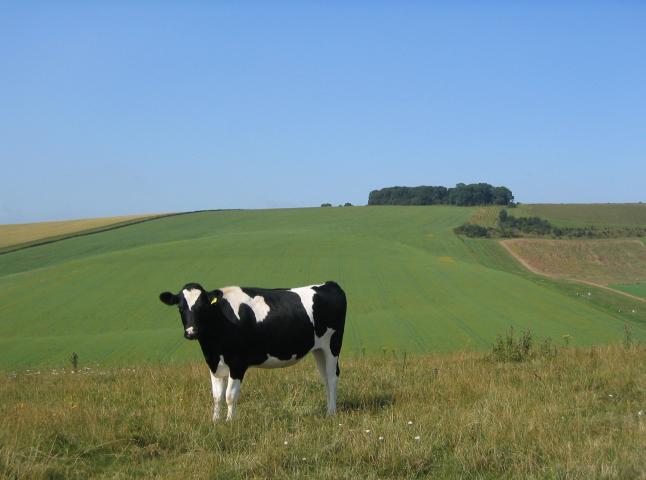One of the major thought experiments in epistemology (the field of philosophy that deals with knowledge) is what is known as “The Cow in the Field.”
The Cow in the Field was first used by Edmund Gettier as a criticism of the popular definition of knowledge as “justified true belief”—that is, that something becomes knowledge when a person believes it; it is factually true; and they have a verifiable justification for their belief.
In the experiment, the farmer’s belief that the cow was there was justified by the testimony of the milkman and his own verification of a black and white object sitting in the field.
It also happened to be true, as the milkman later confirmed.
But despite all this, the farmer did not truly know the cow was there, because his reasoning for believing it turned out to be based on false premises.
Gettier used this experiment, along with a few other examples, as proof of his argument that the definition of knowledge as justified true belief needed to be amended.
We posed this question to our AI Philosopher, Libra, and here is the response:
A farmer who is worried his prize cow has wandered off.When the milkman comes to the farm, he tells the farmer not to worry, because he’s seen that the cow is in a nearby field.
Though he’s nearly sure the man is right, the farmer takes a look for himself, sees the familiar black and white shape of his cow, and is satisfied that he knows the cow is there.
Later on, the milkman drops by the field to double-check.
The cow is indeed there, but it’s hidden in a grove of trees.
There is also a large sheet of black and white paper caught in a tree, and it is obvious that the farmer mistook it for his cow.
The question, then: even though the cow was in the field, was the farmer correct when he said he knew it was there?
Libra's response
This question revolves around the concept of knowledge and the conditions required for a belief to qualify as knowledge.
In philosophy, knowledge is often defined using the tripartite definition: Justified True Belief (JTB).
According to JTB, for a person to know something, three conditions must be met:
- The person must believe it.
- The belief must be true.
- The person must have a valid justification for holding the belief.
In this case, the farmer believed that his cow was in the field, and his belief turned out to be true.
However, the farmer's justification for his belief was based on a mistaken observation of the black and white paper caught in the tree, rather than the actual presence of the cow.
This means that the farmer's belief was not based on valid justification.
So, even though the cow was in the field, and the farmer believed it to be there, the farmer's belief was not based on a proper justification.
According to the JTB definition of knowledge, the farmer did not have knowledge that the cow was there, as his belief was based on a false premise.


John
The cow in the field was not first used bu Gettier but was invented by Martin Cohen who took inspiration from Gettier’s imaginary scenarios.